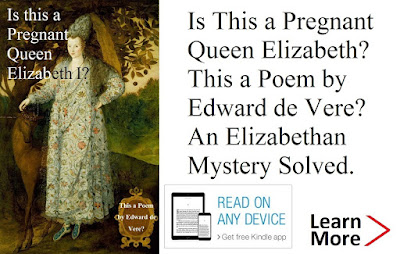James VI of Scotland was slowly progressing from Edinburgh
to London, knighting potential allies for his new crown, as James I of England,
gaining others by lingering to hunt and hawk with the young noblemen who joined
his train along the way. In the usual
manner of a new king preparing for his coronation, James I freed “all prisoners
except those that lay for treason, murther, and Papistrie, giving great summes
of money for the release of many that were imprisoned for debt”.[2]
He received orations of great flattery at each stop with an upright bearing and
easy assurance that he had deserved them. Even the august Bishop of Durham
knelt before him, backed by 100 retainers in livery, waiting to be given
permission to rise.
A Scottish king was a revolutionary change and James had to
take the utmost care to mount his throne through acclamation rather than
attempt it through power. The practical matters in his plan would rely
primarily on dedicated efforts by Cecil.
Perhaps James was aware also that more had changed than the
native country of the king, but probably not. Cecil’s father, William, the 1st
Baron Burghley, had been a towering figure, until his death in 1598. Together
with Elizabeth, he had assiduously continued Henry VII’s efforts to bring the
nobility under control. By 1603, a great deal had changed. Young noblemen were
expected to become highly educated and to put that education toward service to
their country — no longer doughty knights, laden even heavier with arrogance
than armor, but as governors well versed in law, management and policy. England
was on the way towards being a modern nation. But few among the nobility understood
these changes, yet, or that their perceived losses were irreversible.
After making his appearance, Cecil returned to London to
oversee the funeral of the Queen who had overseen these changes for over 40
years, who his family patriarchs had served with such dedication even longer
still. However uncertain his position might be, his first responsibility was to
serve the kingdom. If anything could give him assurance it was his reputation
of supremely competent dedication.
On the day of the funeral he also wrote to the Scottish Master
of Gray — already long an ally — to describe his impression of James:
For the description you have made of His Majesty this I must
say without flattery, that although you have had the happiness long to know him
and serve him, yet his virtues are so eminent that by my six days' kneeling at
his feet I have made so sufficient a discovery of his royal perfections that I
contemplate greater felicity to this isle than ever it enjoyed. As, when I was
free, my heart never harboured thought against him either in his person or in
his state, which your own soul can best witness, so that now I am become his
humble subject and servant I am fully resolved (while breath lasteth) to depend
upon himself only, and to associate only
[with] those whom I shall find freest from private ends.[3]
He had also been making the arrangements for James to be
received at his father’s great mansion at Theobalds, Elizabeth’s favorite stop on
her progresses. The estate would be used as the staging ground for James’s
entry into London for his coronation.
As Cecil accompanied James from York, the scene would have
been little changed from Henry VII’s
progresses on the surface. The countryside being considerably more dangerous, Henry’s
attendants would have been present to provide security. James’ were present
more to provide pomp and display.
Cecil had arranged for a Royal entry. Gratifying crowds of common
citizens magically materialized standing back at a comfortable distance along
the route to the mansion.
There the King came, riding over from Broxbourne on the
appointed day, and found a vast concourse of Londoners, as well as the whole
countryside, in wait to see him.
The king’s entry into London would begin on Cecil lands. He
would remember it with great pleasure.
But Robert Cecil had another facet to him that impressed
many who knew him above all others. It is mentioned by an anonymous witness of
the events.
Whatever their precise number Cecil apparently was ready for
them; and even the poorest found beer
and bread, beef and veal and mutton, with which to make holiday. For the maimed
and distressed soldiery there was made a special provision of wine and money, 'in
very bounteous sort,'…[4]
Something of the last years of the great reign of Queen
Elizabeth I was also properly called the reign of Robert Cecil. During the
opening years of James I somewhat the same might be said. At Theobalds, the
monarchy changed and Robert Cecil remained the same.
[1] Cecil,
Algernon. A Life of Robert Cecil First Earl of Salisbury (1915). 194.
[2] Nichols,
John. Processions, And Magnificent Festivities, Of King James The First
(1828). I.70.
[3] Cecil,
174-5.
[4] Ibid.
Also at Virtual Grub Street:




No comments:
Post a Comment